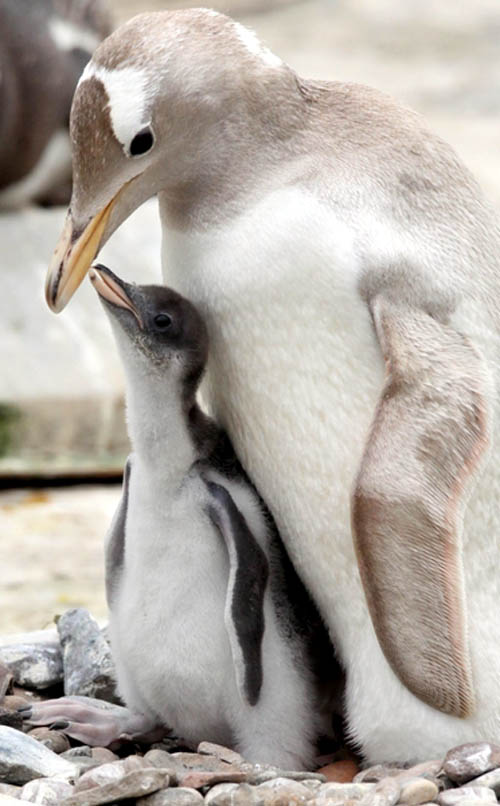EDINBURGH Zoo has been slammed by an animal charity which claims it is responsible for penguins swallowing objects thrown into their pool.
The zoo revealed yesterday (Tue) that vet Romain Pizzi had carried out 22 operations on gentoo penguins over four years to remove objects such as socks, gloves and batteries.
But the Captive Animals Protection Society (CAPS) claims the zoo should do more to prevent penguins swallowing dangerous objects in the first place.
A spokesman for the charity has confirmed that formal concerns will be raised with licensing authorities.

“How many birds need to suffer operations, however non-invasive the technique, before the zoo takes action to safeguard the birds’ health from visitors that throw their litter and other objects into the enclosures?
“This situation shows an appalling lack of regard for the welfare of the animals in question”.
The zoo was inspected by Edinburgh Council licensing officials last year who asked for a number of improvements.
Shortcomings included cross contamination during food preparation as well as poor housing of certain species.
In April this year, zoo officials found themselves under fire after numerous complaints after an Amur Leopard was seen to be anxiously pacing around its “temporary” enclosure.
The endangered animal’s enclosure only measures around 20ft wide and 30 ft.
Concerned members of the public took to the travel review site Tripadvisor to express their worries with many describing the scene as “heartbreaking”.
Despite the criticism, Edinburgh Zoo is enjoying a boom in visitors thanks to the popularity of the pandas.
Earlier this week a member of zoo staff said pregnant female Tian Tian was expected to give birth “any day”.
Zoo bosses insist that it remains unclear whether Tian Tian is pregnant.
A spokeswoman for the zoo said: “As anybody who knows anything about animals will know, all animals and birds, domestic or exotic, do tend to eat things they shouldn’t from time to time.
“Our keepers are extremely vigilant, but unfortunately the combination of wind, visitors and ultra-curious penguins has on the rare occasion led to one of our birds eating something they shouldn’t.
“At the time we had almost 200 penguins in our collection.”
